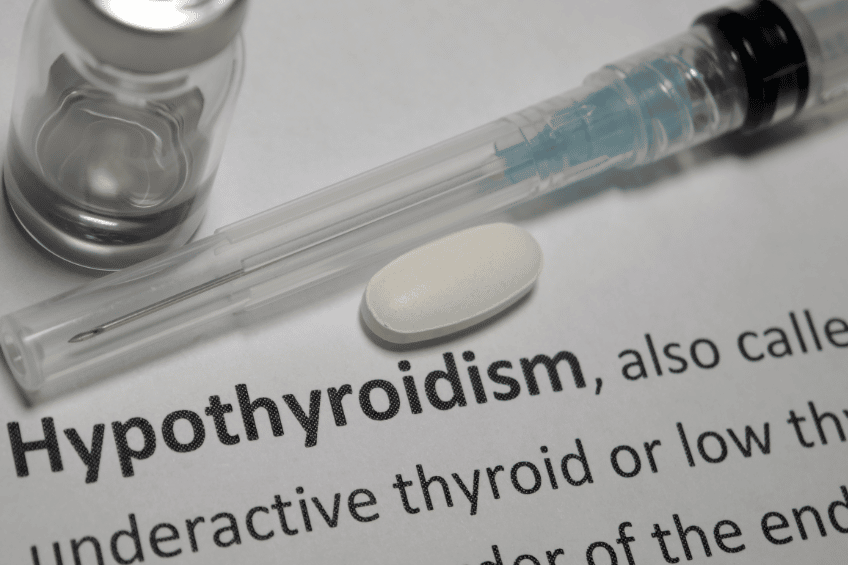Overview
The thyroid is a butterfly-shaped gland located at the base of the neck, in front of the trachea. It secretes thyroid hormones called triiodothyronine or T3, and thyroxine or T4. These hormones are essential because they regulate a large number of body functions.
Fatigue, hair loss, constipation, coldness, weight gain, dry skin… If the thyroid produces too little of the hormones, the whole body is disrupted and slows down its functioning: this is called hypothyroidism.
One of the keys to controlling the symptoms of hypothyroidism is to improve the diet as much as possible. Although other medical recommendations should be followed, diet plays a very important role in regulating thyroid function.

What are the symptoms of hypothyroidism?
- Physical and mental fatigue;
- Dry skin;
- Weight gain;
- Chilliness related to hypothermia;
- Weakening of the hair;
- Irregular periods and loss of libido;
- Muscle pain and stiffness;
- Difficulty concentrating and memory loss;
- Swelling of the extremities, edema;
- Decreased heart rate;
- Puffy face and bags under the eyes;
- High cholesterol.
The essentials of a special hypothyroid diet:
- Iodine-rich foods;
- Foods that are beneficial to the thyroid;
- Proper hydration;
- Avoiding goitrogenic foods;
- Avoiding medications that interfere with the treatment of hypothyroidism;
Let’s take a closer look at all of these essentials:
